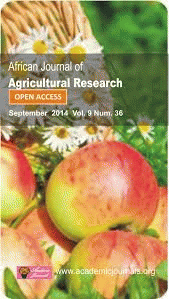This working paper is intended to help countries in West Africa, and local communities and farmers to adopt climate-smart land management practices that enhance carbon sequestration. Abating greenhouse gas emission from land use should not, in the African context, limit a community’s development. Hence, promoting a High Value Biocarbon community of practice should first address the livelihoods of inhabitants through increased socioeconomic development opportunities. The document highlights the importance of interventions like agroforestry in attaining good quality and quantity of products by highlighting the significance of growing fruit and vegetable trees, nitrogen-fixing trees against heavy fertilizer usage, protection of standing biomass, utilization of improved wood energy stoves and land restoration. The substantial amount of information and data required to execute each of the projects are given in detail in this working paper, together with the socioeconomic and environmental benefits, costs incurred, monitoring requirements, proposed management schemes and capacity building. The rates of success of the projects can be measured by conducting carbon inventories, estimating the amount of carbon dioxide emissions released, and carrying out surveys among locals to ascertain the quality and quantity of produce and market values. The challenges and barriers experienced in implementing biocarbon development projects can be addressed by increasing the number of training workshops offered on conducting carbon inventories, bridging the gaps in research and development, increasing access to capital and improving infrastructure development. It is fundamental to ensure progress in these statures to encourage further sustainable farming techniques for the benefit of the environment, society and the economy.
DOI:
https://doi.org/10.5716/WP16138.PDF
Altmetric score:
Dimensions Citation Count:

Publication year
2016
Authors
Sehmi, R.; Mbow, C.; Pitkanen, S.; Cross, H.; Berry, N.; Riddell, M.; Heiskanen, J.; Aynekulu, E.
Language
English
Keywords
vegetable crops, agroforestry, air pollution, nitrogen-fixing trees, socioeconomics, soil quality, fertilizers, soil
Geographic
Burkina Faso, Senegal, Cameroon, Niger, Côte d'Ivoire























